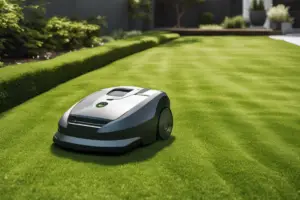If you’re planning on starting your rooftop garden you need to plant the correct plants.
Plants that don’t do well in sunlight aren’t going to survive in your rooftop design. So, which plants do?
Plants that thrive in sunlight:
- Daylily
- Lavender
- Yarrow
- Purple Cornflower
- Russian Sage
- Shasta Daisy
- Butterfly Weed
- Sedum
- Bee Balm
- Verbena
Deciding which ones are right for your rooftop can be tricky as they are all beautiful plants.

Table of Contents
The Best Plants That Thrive In Sunlight For Your Rooftop Garden
Here at The Walled Nursery, we like doing the hard work for you.
1. Daylily
Daylily or (Hemerocallis) comes from the Greek words Herrema and Kallos which mean Day and Beauty. This works perfectly as the flower only lasts one day.
There are 15 varieties of Daylily’s which all come in a staggering array of colors. These colors are a mixture of two colors that blend.
Daylilies grow well in full sun, they need at least six hours of sunlight, preferably in the morning. To make sure your Daylily grows healthily use a 10-10-10 fertilizer.
2. Lavender
Lavender, part of the Labiatae family is a beautiful plant that is commonly known for its aroma. Its aromas are used to reduce anxiety, depression, and many more.
This plant is easy to care for and perfect for rooftop gardens as they thrive in warm, dry conditions.
Caring for your lavender is easy and takes little maintenance, water, and prune regularly to encourage new growth.
3. Yarrow
Yarrow is a beautiful white flower that can grow in most locations as it’s nearly enough maintenance-free.
As this plant does take little to no care is it vulnerable to diseases such as mildew, which is a white coating over the flower. This is easily treated with fungicide.
Yarrows are commonly used as a medicinal herb and used to reduce symptoms of anxiety and depression. Which makes it a perfect plant for your rooftop garden.
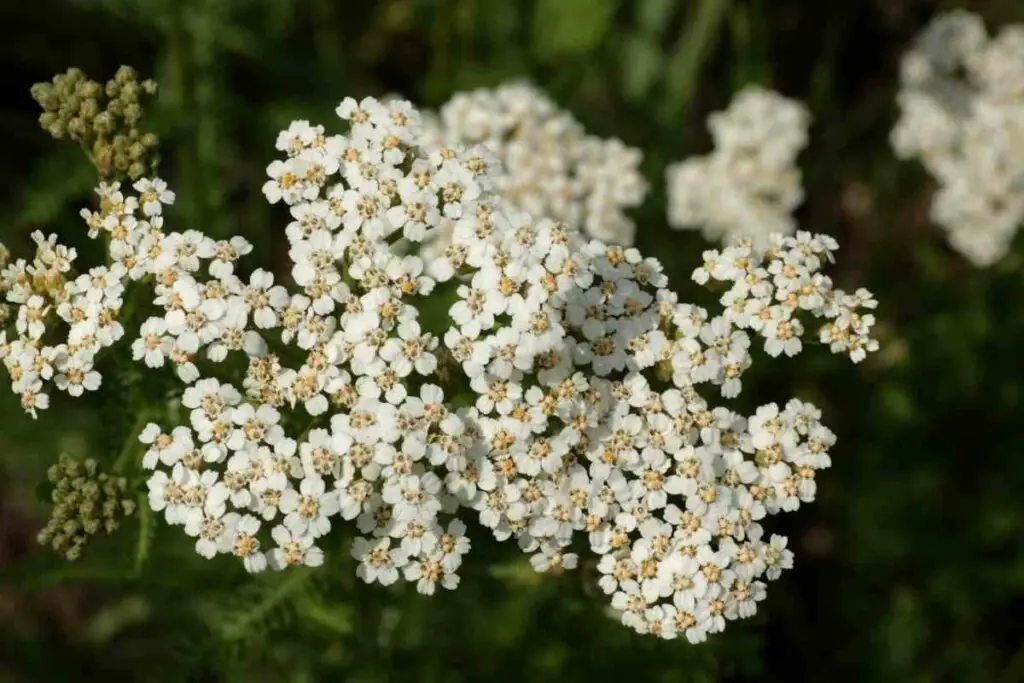
4. Purple Coneflower
Purple Coneflower can be found in gardens throughout the United States and they are hard to miss with their bright purple petals.
Caring for your Purple Cornflowers can be easy, these flowers are drought resistant which means they thrive well through dry summer.
If your flowers throughout bloom are looking’s tired if probably because it isn’t receiving the nutrients it needs. Use an all-purpose fertilizer.
5. Russian Sage
Russian Sage’s appearance is very similar to Lavender but two completely different species.
This beautiful plant is perfect for filling any bare spaces in your rooftop garden as the plant clusters and blooms together in a spikey bush shape.
The plant blooms from late spring to autumn.
Caring for this plant is simple, as it doesn’t need watering often. The plant thrives in dry soil normally caused by high temperatures.
We recommend using fertilizer when needed but it isn’t often and change compost yearly.
6. Shasta Daisy
Shasta Daisy’s take a little more care than the other plants listed on this list, but they are worth it!
Making sure you plant your Shasta Daisy’s correctly, it’s key for them to bloom for many years to come.
Make sure you prepare your soil properly; fertile soil is necessary for the best bloom. Shasta Daisy’s thrive well in sunlight but do prefer a light shade if possible.
Make sure not to overwater your daisy’s as they could rot and destroy the roots without proper drainage.
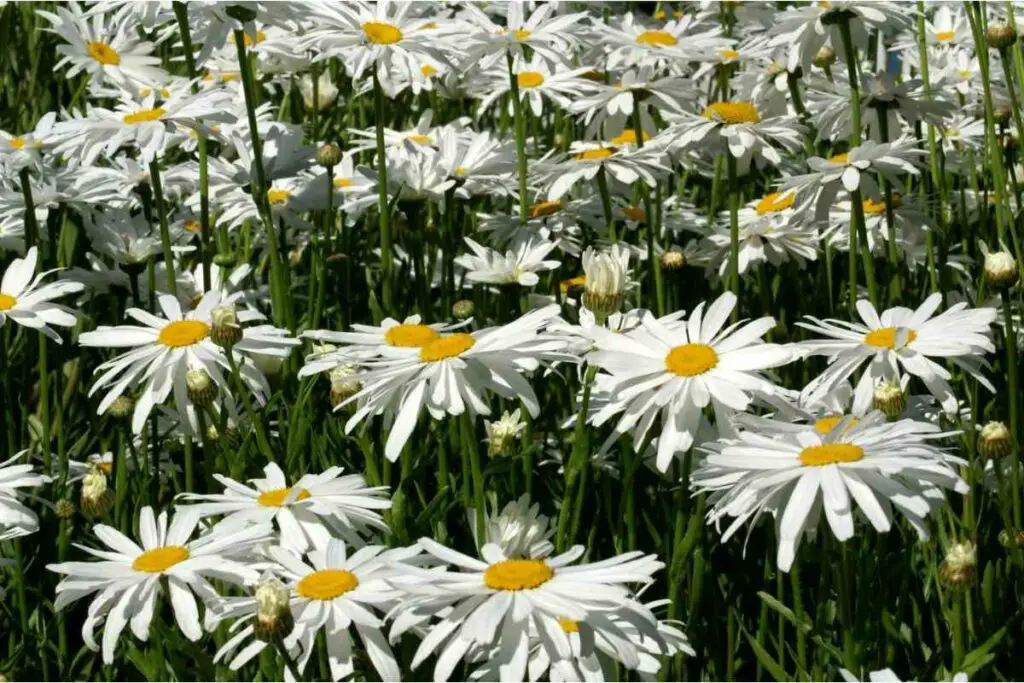
7. Butterfly weed
Butterfly Weeds is rich in pollen and full of nectar with attracts a range of beneficial insects such as Bees and Butterflies.
It grows in a variety of different environments like open woods, dry fields, and meadows. Making it perfect for rooftop gardens as it thrives in bright sunlight and dry, sandy soil.
Growing the plant from seeds is easy but can take time, it may even take 2 to 3 years to fully bloom. But once bloomed it will continue to bloom yearly.
8. Sedum
Sedum or otherwise known as stonecrop gets this name as a stone needs more care than this plant.
There is a wide variety of Sedum and most of them thrive extremely well in full sun and dry soil.
Most commonly used in gardens where plants can survive because of too much direct sunlight. This is why Sedum is the perfect addition to your rooftop garden.
This plant doesn’t need fertilizing or overwatering. If you do this may lead to more damage.
9. Bee Balm
Bee Balm is a beautiful flower that adds color and brightness to any garden this plant doesn’t only attract people to them but also wildlife such as Bees, Butterflies, and Hummingbirds.
The plants are originally found in woodland areas throughout North America. They prefer moist soil, and sunny, warm weather.
Your rooftop garden, with the right care, is the perfect location for the plant.
When caring for your Bee Balm plants make sure its soil stays moist, it thrives in warm conditions but in the cold winter the plant may die completely.
It’s also vulnerable to powdery mildew through the cold weather but can be easily treated with a fungicide spray. Here’s one we found for you.
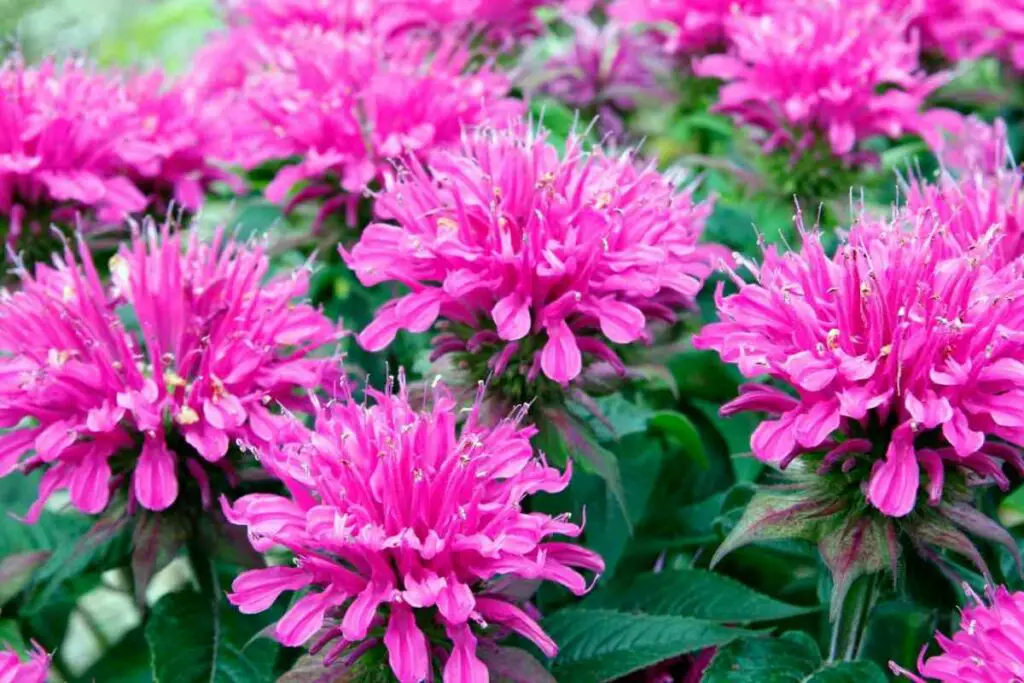
10. Verbena
you choose to plant
Verbena plants are simple to care for no fertilizer is needed just regular watering and well-drained soil in full sun.
This plan is known to reappear every year but only blooms for a short period of time but the plant is rich with nectar which benefits the rest of the garden and wildlife.
What will Happen If You Don’t Plant full sun plants?
Throughout the blooming season and as the warmer weather begins to arrive plants need more care and we don’t always have the time.
Especially for rooftop gardens, it’s important to plant flowers that thrive well in sunlight. This is because plants will not have any shade, unlike flowers that are planted on the ground and will be in direct sunlight for a long time.
Rooftop gardens suffer from dry soil with being in direct sunlight, the plants that don’t do well in dry soil will die and all your hard work will have been for nothing.
- How to Build a Planter Box for Bamboo: A Step-by-Step Guide
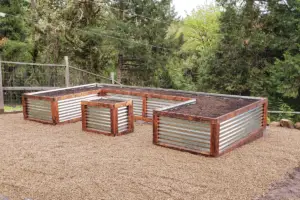
- Can Robotic Lawnmowers Handle Steep Slopes?
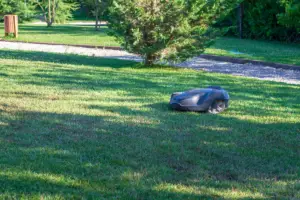
- Do You Need a Specific Lawn for a Robotic Lawnmower? Expert Advice
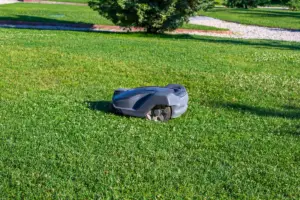
- Are Robotic Lawnmowers Safe for Pets and Children? Safety Features of Robotic Lawnmowers
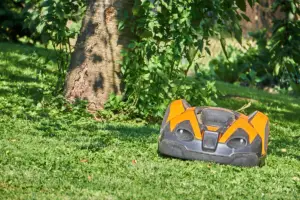
- Why Use Robotic Lawnmowers? Advantages of Using a Robotic Lawnmower
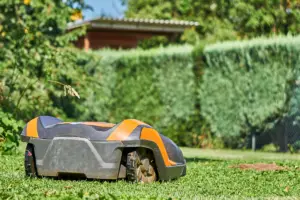
- Is the GARDENA SILENO City 300 Cordless or Corded? A Clear Answer
